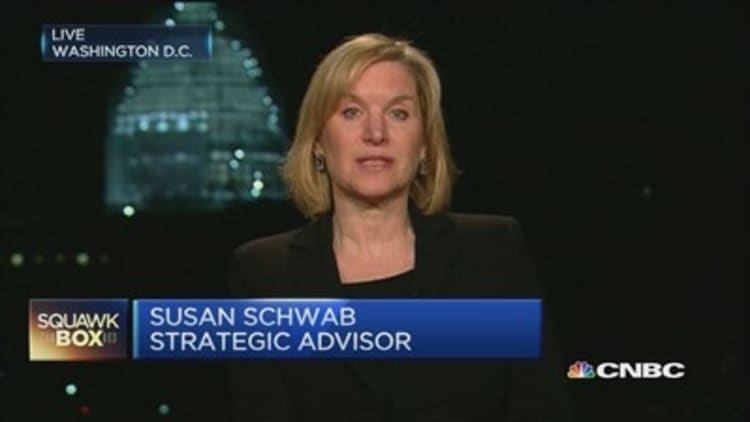As Japan Prime Minister Shinzo Abe embarks on a historic trip to the United States, hopes are high for a deal on the Trans-Pacific Partnership (TPP), one of the biggest trade deals in American history.
By most accounts, a deal is not likely to be signed this week, despite the massive benefits to both sides. Here's what you need to know about what's holding up the TPP talks, what's at stake and what's next.
TPP in a nutshell
TPP is a proposed free trade treaty that covers 12 countries, including the U.S. and Japan, and covers 40 percent of the world GDP. The U.S. and Japan are the two largest economies amongst the 12 nations and failure to reach agreement has held up progress on a broader deal.
Why does it matter to U.S.?
For the U.S., TPP is a structure to frame its leadership on multilateral trade and investment rules, as well as an opportunity to define and confirm the U.S.' leadership role in Asia.
In terms of trade with Japan, the U.S. wants to sell more farm products, in particular pork, beef, dairy products and rice, as well as American cars, to Japan.
Why does it matter to Japan?
Japan does not have a free trade agreement with the U.S. but wants to expand its manufacturing exports, much like its neighbor and rival South Korea did when it signed its own free trade deal with the U.S. in 2011.

What's the holdup?
In a nutshell, old battles: cars and rice.
The U.S. is holding out for more access to its food products, as well as its cars.
Japan wants the U.S. to phase out the tariffs on car and auto parts imports, without giving up too much on food import tariffs, particularly its "sacred" staple, rice.
Where from here?
The next step is for U.S. President Barack Obama to win, in both houses of Congress, the final vote that will give him fast-track negotiating authority. The vote is scheduled for next week and the Republicans, which control both houses, are expected to put the proposal through.
Presuming that pans out, ministers in charge of TPP negotiations in the 12 countries will need to gather again for what will hopefully be a final round of negotiations.

